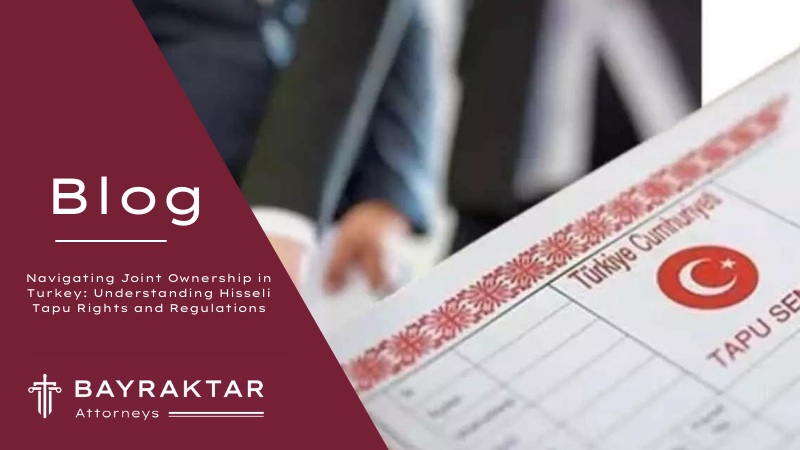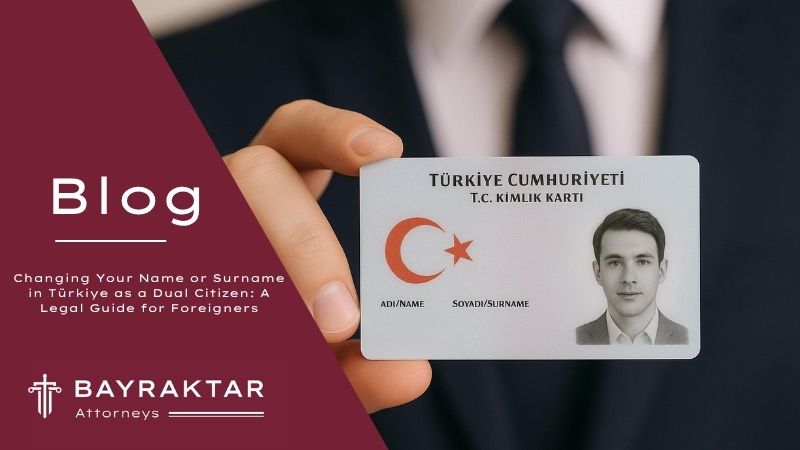
Navigating Joint Ownership in Turkey: Understanding Hisseli Tapu Rights and Regulations
Welcome to a concise exploration of joint property ownership in Turkey, focusing on hisseli tapu rights and regulations. This term refers to shared title deeds, an arrangement that can be quite common in Turkey for various reasons, including inheritance or joint investments. Whether you are a foreigner contemplating property investment or embarking on an estate division, understanding the nuances of joint ownership under the Turkish legal system is crucial. In this post, we will delve into the intricacies of hisseli tapu, ensuring you have the information needed to navigate this landscape effectively.
What is Hisseli Tapu?
Hisseli tapu translates to ‘fractional deed’ or ‘shared deed’ in Turkish and signifies a scenario where a property is owned by two or more individuals, with each person’s share clearly defined in the deed. The Land Registry Office (‘Tapu Sicil Müdürlüğü’) in Turkey issues these deeds, which detail the size and boundaries of the property, as well as the proportionate ownership of each party. It is absolutely critical for joint owners to explicitly record their respective shares to prevent future disputes.
Legal Implications of Joint Ownership
Navigating the legal waters of joint ownership in Turkey requires an understanding of your rights and responsibilities. Every owner, as per hisseli tapu, has the right to use the property according to their share and has an obligation to contribute to necessary maintenance and management costs. However, significant decisions regarding the property, such as selling or making substantial alterations, typically require the consent of all co-owners or must be in line with any existing joint ownership agreement.
Transfer and Sale of Hisseli Tapu Shares
Transfer or sale of individual shares in a hisseli tapu can be a complex process, often leading to legal challenges. It’s critical to note that other shareholders have a preemptive right to purchase the shares before they are sold to an outsider, which is designed to protect existing owners. Engaging in such transactions also mandates official procedures, including updating the deed at the Land Registry Office to reflect any changes in ownership shares.
Resolving Disputes and Protecting Your Rights
In the event of a dispute among joint owners, Turkish law favors mediation and negotiation to reach amicable solutions. Legal remedies also exist and the Turkish courts can provide resolutions in cases where an agreement cannot be achieved. To protect your rights and investments when dealing with hisseli tapu, seeking legal advice from a specialized attorney, like those at Bayraktar Attorneys, is always advisable. This ensures that all actions related to joint ownership are both legally sound and beneficial for your interests.
In summary, understanding and respecting the rights and regulations associated with hisseli tapu is paramount for any joint property owner in Turkey. Through due diligence and the guidance of legal experts, navigating the complexities of shared ownership can be a clear-cut and secure process, ensuring the protection of your assets and peace of mind in the Turkish property market.
Contact us today at Bayraktar Attorneys for expert legal guidance on navigating joint ownership rights and regulations in Turkey. Whether you’re considering property investment or dealing with inheritance matters, our specialized attorneys are here to ensure that your interests are protected. Don’t let the complexities of hisseli tapu overwhelm you—reach out to us now for tailored assistance.







